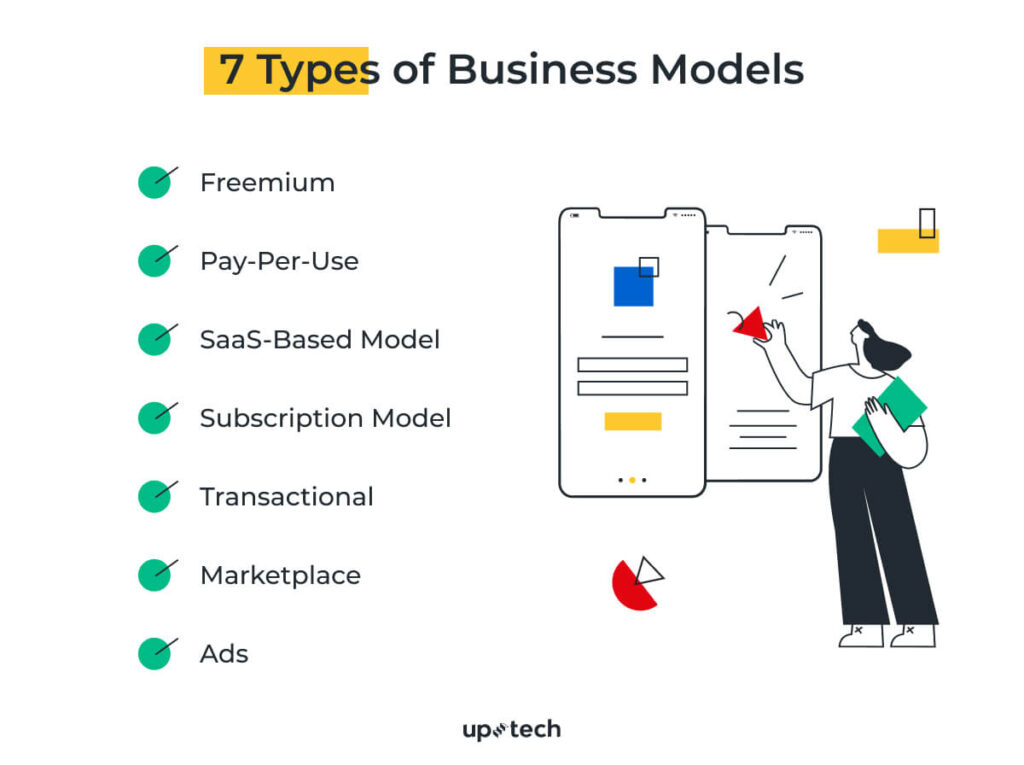
Exploring Effective Startup Business Models for Success
Exploring Effective Startup Business Models for Success https://theraise.eu/wp-content/uploads/2023/09/624e90d6d5a78b33ac57ac1f_7-Types-of-Business-Models-1024x765.jpeg 1024 765 RAISE fosters startup growth and scale-up within and across Europe RAISE fosters startup growth and scale-up within and across Europe https://theraise.eu/wp-content/uploads/2023/09/624e90d6d5a78b33ac57ac1f_7-Types-of-Business-Models-1024x765.jpegIn the dynamic landscape of entrepreneurship, choosing the right business model is a crucial determinant of a startup’s success. A well-crafted business model not only defines how a company creates and delivers value but also plays a pivotal role in attracting investors and customers. In this article, we’ll explore various startup business models and highlight their unique advantages and challenges.
1. Subscription Model
The subscription model is gaining immense popularity among startups, offering recurring revenue and a steady customer base. Under this model, customers pay a regular fee to access a product or service. Companies like Netflix and Spotify have successfully employed this model, offering customers a continuous stream of content.
Advantages:
- Predictable revenue streams.
- Strong customer retention due to ongoing value.
- Opportunities for upselling and cross-selling.
Challenges:
- Initial challenges in acquiring a critical mass of subscribers.
- High competition in certain sectors.
2. E-commerce Model
E-commerce startups have disrupted traditional retail by selling products or services online. This model offers convenience and accessibility to customers, and companies like Amazon and Shopify have thrived using it.
Advantages:
- Wide customer reach, irrespective of geographic location.
- Ability to scale rapidly with the right products.
- Detailed data analytics for customer insights.
Challenges:
- Intense competition, requiring unique value propositions.
- Logistics and fulfillment complexities.
3. Marketplace Model
Marketplace startups connect buyers and sellers, facilitating transactions. Companies like Airbnb and Etsy have achieved remarkable success by fostering a sense of community and trust among users.
Advantages:
- Scalability without the need for inventory.
- Revenue through transaction fees or commissions.
- Network effects as more users join the platform.
Challenges:
- Maintaining trust and safety within the marketplace.
- Balancing the interests of both buyers and sellers.
4. Freemium Model
The freemium model offers a basic version of a product or service for free, with premium features available for a fee. Apps like Dropbox and Evernote have used this model effectively.
Advantages:
- Widespread user adoption with a free offering.
- Opportunity to upsell premium features.
- Continuous user engagement.
Challenges:
- Converting free users into paying customers.
- Striking the right balance between free and premium features.
5. SaaS (Software as a Service) Model
SaaS startups provide software applications through the cloud on a subscription basis. Companies like Salesforce and Slack have thrived by offering efficient and scalable solutions to businesses.
Advantages:
- Recurring revenue and customer retention.
- Easy updates and maintenance.
- Access to valuable customer data.
Challenges:
- Fierce competition in the SaaS market.
- High customer acquisition costs.
6. On-Demand Model
On-demand startups deliver services or products immediately when customers request them. Examples include Uber and DoorDash, which cater to the instant gratification of modern consumers.
Advantages:
- Convenience and speed of service.
- Opportunity to tap into a growing market trend.
- Flexible work arrangements for providers.
Challenges:
- Regulatory hurdles and legal considerations.
- Balancing supply and demand effectively.
Conclusion
Selecting the right business model is a critical decision for startup founders. It requires a deep understanding of the target market, competitive landscape, and the unique value proposition of the product or service. While each model has its advantages and challenges, successful startups often innovate within their chosen model to stand out in a crowded market. Ultimately, the key to success lies in adaptability, customer-centricity, and continuous improvement as the startup navigates its journey to growth and sustainability.
Photo via UpTech
- Posted In:
- Startup News




